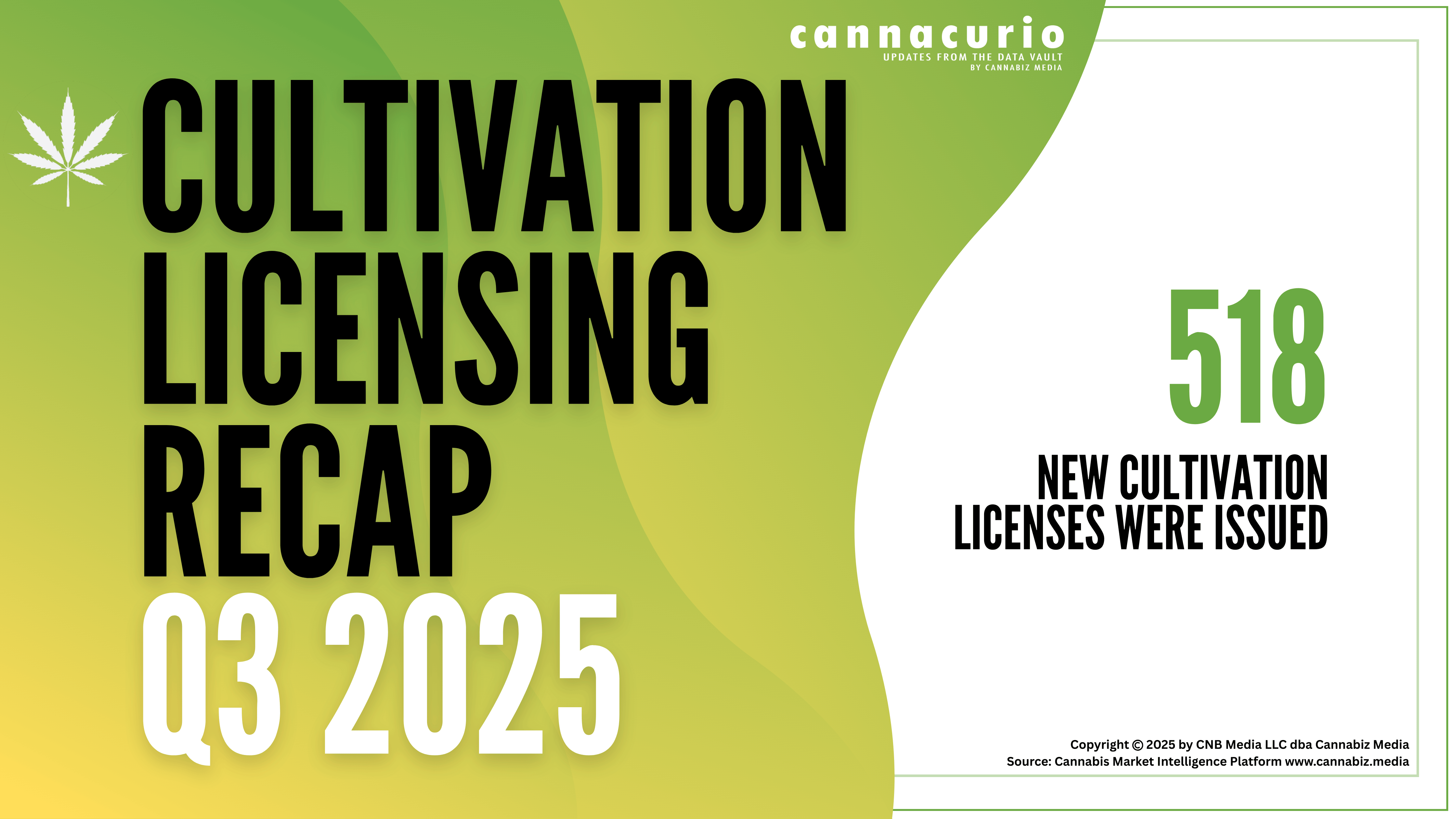
The Social Impact of Cannabis Legalization in the United States
In recent years, there has been a greater focus on social equity issues in terms of cannabis business license distribution and laws that affect individuals and communities, including decriminalization, records expungement, and more. As a result, researchers have already been analyzing the effects of cannabis legalization on society in multiple studies that have already legalized medical and/or recreational marijuana.
To date, researchers have discovered that cannabis legalization results in a variety of social benefits related to crime, social justice, safety, law enforcement, public health, education, and youth.
Let’s take a closer look at some of the benefits of cannabis legalization based on research and data to get a better understanding of its social impact in the United States.
RELATED READING: The Economic Impact of Cannabis
Public Perception
As more states legalize medical and adult-use cannabis, public perception of marijuana has changed across demographics. A 2018 study by BDS Analytics, “Public Attitudes and Actions Toward Cannabis in California,” found that drastic changes happen in the cannabis industry – faster than most other industries, such as health and wellness or sustainability.
Specifically, cannabis is no longer a topic discussed in private. Linda Gilbert, Managing Director BDS Analytics explained, “It’s clear that open conversation about cannabis is happening more now than ever before, and it’s affecting everything from attitudes to opinions on consumption.
”As an example of how the public perception of cannabis has impacted opinions on consumption, Gilbert points to the growing acceptance of microdosing throughout the day, something that is the opposite for other activities like drinking alcohol.
Gilbert explains, “We haven’t been able to come up with an example of any other product that consumers can look to as being everything from fully recreational to fully medical. No other product really lives in that space where it’s appropriate for multiple occasions throughout the day. You can use it at night, you can use topicals in the morning or edibles in the afternoon or topicals after exercising. Cannabis is unique in that way.
”Bottom-line, public perception continues to shift as more people become educated and comfortable with cannabis through more open communications.
Crime and Social Justice
Numerous studies as well as law enforcement data have shown that cannabis legalization reduces some types of crime. In fact, arrests and court filings related to marijuana possession, cultivation, and distribution drop significantly after legalization.
As Liberty Vittert, Visiting Assistant Professor in Statistics at Washington University in St. Louis explains, “There is really no doubt that states which allow medical marijuana show absolutely no increase in their violent and non-violent crime statistics. In fact, crime might actually decrease.
”In terms of arrest rates, an October 2018 report from the Colorado Division of Criminal Justice revealed that the number of cannabis arrests dropped by half during the five-year period after legalization from 2012 (12,709 arrests) to 2017 (6,153 arrests). Cannabis possession arrests decreased by more than half during the same time period from 2012 (11,361 arrests) to 2017 (5,154 arrests)
A separate report from the Drug Policy Alliance, From Prohibition to Progress: A Status Report on Marijuana Legalization, found that crime dropped in each state after legalization in a variety of ways:
- Washington State: The number of low-level marijuana court filings dropped by 98% between 2011 and 2015 (marijuana was legalized in 2012).
- Colorado: The number of marijuana-related court filings declined by 81% between 2012 and 2015 (marijuana was legalized in 2012).
- Washington, D.C.: The number of marijuana arrests decreased by 76% from 2013 to 2016, and possession arrests fell by nearly 99% (marijuana was legalized in 2014).
- Oregon: The number of marijuana arrests dropped by 96% from 2013 to 2016 (marijuana was legalized in 2014).
- Alaska: The number of marijuana arrests for possession and sales/manufacturing decreased by 93% from 2013 to 2015 (marijuana was legalized in 2014).
Public Safety
Public safety issues are also affected when marijuana is legalized. This is particularly interesting since 79% of Americans who oppose cannabis legalization say a very important reason is that it would increase the number of car accidents involving drivers who use marijuana according to a spring 2019 Gallup survey.What’s so interesting about that? Researchers have found that cannabis legalization does not increase car accidents.
For example, the Drug Policy Alliance study mentioned earlier in this article concluded that marijuana legalization did not negatively affect road safety in any states. In fact, the researchers found that driving under the influence (DUI) arrests went down in both Colorado and Washington State after legalization.
Furthermore, the Drug Policy Alliance researchers found no correlation between marijuana legalization and crash rates in their study. This corroborates findings published in the Journal of American Public Health Association, which discovered there was not an increase in crash fatalities during the first three years after legalization in Colorado and Washington.
The Colorado Division of Criminal Justice report found similar results. The number of drivers in fatal crashes who were above the legal limit of THC decreased by nearly 33% from 52 in 2016 to 35 in 2017. The number of citations for cannabis-only impairment in Colorado stayed steady between 2014 and 2017 at just 7% of all DUI arrests. According to the report, that’s approximately 350 citations out of nearly 5,000 DUI arrests per year.
Law Enforcement
The Drug Policy Alliance study reported that the reduced number of arrests that law enforcement agents need to make after marijuana is legalized results in significant savings. In fact, those savings are estimated to be hundreds of millions of dollars, which law enforcement can then reallocate to other things, including social investments.
Considering that the spring 2019 Gallup poll found 70% of Americans who support cannabis legalization do so because they believe it will free up law enforcement to focus no other types of crime, the research results show they’re right to feel that way.
More specifically, Vittert shares, “FBI data from Colorado and Washington show that crime clearance rates – the number of times that the police solved a crime – increased for both violent and property crimes after legalization.
”In addition, a study published in The American Journal of Drug and Alcohol Abuse, “How Will Cannabis Legalization Affect Health, Safety, and Social Equity Outcomes,” author Bill Kilmer concludes, “Given the well-documented racial and ethnic disparities in cannabis-related offenses, a reduction in arrests could have important implications for social equity outcomes.”
Public Health
Marijuana legalization is linked to lower rates of opioid-related overdoses, death, and harm, which could significantly improve public health during the current “opioid epidemic” environment. The Drug Policy Alliance report explains that it’s not just medical cannabis availability that affects this aspect of public health, but recreational cannabis legalization has an impact as well.
Opioid overdose death rates are almost 25% lower in states with medical marijuana. Furthermore, states with medical marijuana have seen a 23% reduction in opioid dependence or abuse-related hospitalizations and a 15% decrease in opioid treatment admissions.
The Drug Policy Alliance references a separate analysis in Colorado that found after adult-use marijuana became available for retail sale in 2014, opioid overdose deaths declined by 0.7 deaths per month in the same year. For decades, the number of opioid overdose deaths in Colorado each year had been rising, but in 2014 (when adult-use marijuana became available), the upward trend quickly started to decline.
While 69% of Americans who oppose cannabis legalization say a very important reason is that it would lead to more people using stronger and more addictive drugs according to the spring 2019 Gallup survey, the research simply doesn’t support that belief. Instead, more research supports the 86% of Americans who favor legalization due to the medical benefits of cannabis according to the spring 2019 Gallup survey.
Education and Youth
In many states that have legalized marijuana, the Drug Policy Alliance reports that youth marijuana use has remained stable and in line with rates in states that have not legalized marijuana. However, there are some studies that report a decrease in marijuana use by youth under the age of 21 after legalization.
A study published in the Journal of the American Medical Association – Pediatrics, in July 2019 found that the number of high schoolers who used cannabis in the last 30 days fell by 8% in states where adult-use marijuana has been legalized. Furthermore, the number of high schoolers who used cannabis at 10 times or more in the last 30 days dropped by 9%. While the researchers found no effect on teen use after medical cannabis legalization, they did find evidence of a reduction in teen use after recreational cannabis legalization.
Similarly, a 2017 study by the National U.S. Substance Abuse Mental Health Services Administration reported that cannabis use in teens declined in most jurisdictions where adult use marijuana had been legalized and was being regulated. This included Oregon, Washington State, Washington, DC, and Colorado – where the teen use rate of marijuana had dropped to its lowest level in nearly 10 years.
The Colorado Division of Criminal Justice found that the state did not experience an increase in cannabis use among young people after legalization nor did legalization affect graduation rates or dropout rates. In fact, graduation rates increased since 2012 while dropout rates decreased.
What’s Next?
The data that researchers have been able to study so far shows cannabis legalization can have a number of positive social effects, and more will certainly come in the future as additional states consider legalization and begin regulating cannabis.
At this time, more research is needed and more social impact metrics need to be tracked and analyzed. However, the data available so far has successfully debunked many of the myths that were once touted about how cannabis legalization would increase crime, reduce safety, harm children, and cause more deaths and other harmful health conditions.
It’s important to note that much of the revenue collected by states from their cannabis programs is allocated for social investments, including things like youth treatment and education, state and local government, environmental restoration, health care, substance abuse prevention, state police, schools, public safety, and more. Some researchers believe the decline in cannabis use among teens, cannabis arrests, and so on could be directly related to these revenue allocations.
As more research is conducted, data will continue to provide more evidence related to the social impact of cannabis legalization, and with more reliable data, the path toward positive public perception and full legalization should be smoother.
Originally published 10/1/18. Updated 1/29/21.

.png)

